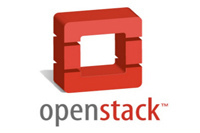New OpenStack release offers virtualisation and network features
Open source cloud project OpenStack has introduced a new set of features.


The open source cloud project, OpenStack, has unveiled its third software release in an attempt to improve the scalability and reliability of cloud deployments.
OpenStack was set up last summer by Rackspace and NASA as a way to drive open source deployment for cloud projects. It has since attracted support from a variety of vendors.
The new release, code-named Cactus, works across the OpenStack Compute, Object Storage and Image Service projects. In addition to performance improvements, Cactus also extends support for existing enterprise technologies including Microsoft Hyper-V, KVM, LXC, QEMU, UML, VMware vSphere, Xen and Citrix XenServer. It also supports enterprise storage technologies such as Solaris iSCSI and HP SAN.
The new features also include a new API, which will allow developers to innovate more quickly by adding extensions to their local OpenStack installations ahead of the code being accepted by the OpenStack community as a whole. Cactus also offers live migration support for KVM to enable users to switch between one running virtual host and another.
Furthermore, the new release also includes improved network management support, including the ability to handle the emerging IPv6 technology, as well as QoS support for Citrix Xen Server.
The moves are an indication of OpenStack's strength in the cloud arena, according to Stuart Sims, vice president of cloud at Rackspace.
"OpenStack is the fastest growing open source cloud project right now. In less than a year, we've had three successful code releases, contributions from 200+ open source developers, and the backing of more than 60 participating organisations like Canonical, Cisco, Citrix, Dell, Intel, Microsoft and NASA," he said.
Get the ITPro daily newsletter
Sign up today and you will receive a free copy of our Future Focus 2025 report - the leading guidance on AI, cybersecurity and other IT challenges as per 700+ senior executives
"It is already in production with Internap, NASA, NephoScale and Rackspace, with more deployments expected this quarter."
Sims said that users could expect to see further enhancements in the future.
"As contributors to OpenStack we fully believe that as a solution evolves, so should the features and opportunities it creates for users," he added.
"As a result we and the other OpenStack partners are continuing with the three-month cycle of updates, as it ensures users benefit from continued innovation, enhanced network management features, new storage solutions and support across all major virtualisation technologies."
Max Cooter is a freelance journalist who has been writing about the tech sector for almost forty years.
At ITPro, Max’s work has primarily focused on cloud computing, storage, and migration. He has also contributed software reviews and interviews with CIOs from a range of companies.
He edited IDG’s Techworld for several years and was the founder-editor of CloudPro, which launched in 2011 to become the UK’s leading publication focused entirely on cloud computing news.
Max attained a BA in philosophy and mathematics at the University of Bradford, combining humanities with a firm understanding of the STEM world in a manner that has served him well throughout his career.

